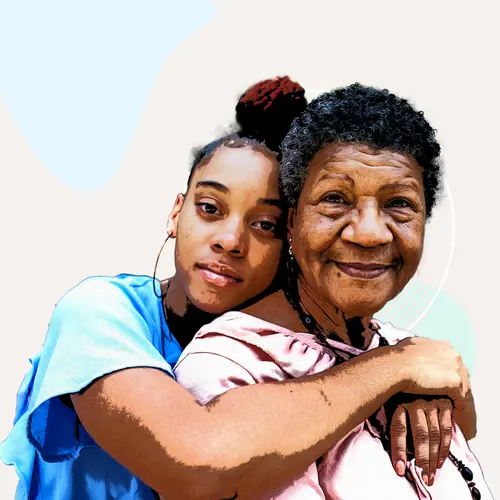When someone you love gets diagnosed with Alzheimer’s, it’s hard to know where to start planning for the future. Your new role as caregiver can be overwhelming. You’ll have to steer through the stages of dementia, starting with memory loss and confusion. Over time, your friend or family member will need help with everyday activities.
As the decision maker, you’ll need to have an action plan in place. Here’s a checklist of things to consider.
1. Put together a team. This is a lot of responsibility for one person to take on. So pick out some close aides you can count on. Think about their strengths and weaknesses (physical and emotional), relationship dynamics, and other competing obligations. Knowing who’s who in your loved one’s inner circle helps with division of labor.
2. Trace a day in your loved one's life. Watch for what they can and can’t do for themselves. Doctors, rehab specialists, and geriatric social workers can help assess their needs. A 2015 book,The ABA/AARP Checklist for Family Caregivers: A Guide to Making it Manageable, provides a list of some daily routines and chores to keep an eye on. Determine how well they do the following things:
- Make meals and eat
- Bathe, groom, and use the restroom
- Dress themselves
- Walk and move around
- Pay bills and manage money
- Drive or navigate public transit
- Take their medications
- Do household chores
3. Keep a record of facts and figures. As their memory fades, details that were once at "top-of-mind" can be lost for good. Write those things down before they’re forgotten. Practical information is key, but so are sentimental things.
4. Pull together a complete medical history. Do you know all of your loved one's health conditions? All of their health conditions? What medicines do they take? The names of all their doctors (primary care and specialists)? If they have allergies? Past illnesses, surgeries, treatments, and test results?
If not, it’s time to build a big file. You’ll need your loved one’s permission to get their health records, which are protected by HIPAA privacy rules. And you’ll want to sign a health care proxy to legally make medical decisions for them when they're no longer able.
Now that everything is computerized, you will want to create a file on your computer with all this information. It is a good idea to back up the file on a flash or thumb drive that you can carry in case you have to go to the emergency room.
5. Track their finances. A list of numbers you’ll need to hunt down include:
- Account numbers
- Bank balances
- Investment holdings
- Insurance policies and payouts
- Total assets
- Outstanding debts
- Ongoing expenses
You’ll need to plan for the cost of care, pay bills, arrange benefit claims, make investment decisions, and prepare tax returns. These can be touchy issues, since the person with Alzheimer’s has to hand over control and fully trust your judgment. And money can be a great divider of families.
Your loved one can sign over durable power of attorney, giving you the right to make financial choices on their behalf. You can also hire a trusted third party: a CPA, family banker, estate planning attorney, or financial planner. Don't forget to put this in the computer file and thumb drive. The data should include who has Power of Attorney, along with any advance directive or living will.
6. Put a legal plan in place. Find the latest version of their will and estate plan. Act fast if they don’t have one or it needs to be updated. They might also want a living will, a legal document that spells out their wishes for end-of-life care. It’s important to have clear instructions and decide who will put their affairs in order.
7. Fill a safe deposit box. Here’s what should go in it:
- Birth certificate
- Blank checks
- Car title
- Deeds (real estate, personal property, burial plot)
- Driver’s license
- Family trees or genealogy records
- Health insurance cards
- Insurance policies and cards
- Legal documents
- List of bank accounts
- List of credit, debit, and ATM numbers
- List of type and model of medical equipment
- Marriage certificate
- Medical records
- Medicare card
- Military service serial numbers
- Organ donor card
- Passport
- Personal property inventory
- Social Security card
- Stock certificates
Putting all these ducks in a row is a big responsibility, so tackle it a piece at a time. And while you’re looking after your loved one, remember to care for yourself, too.

